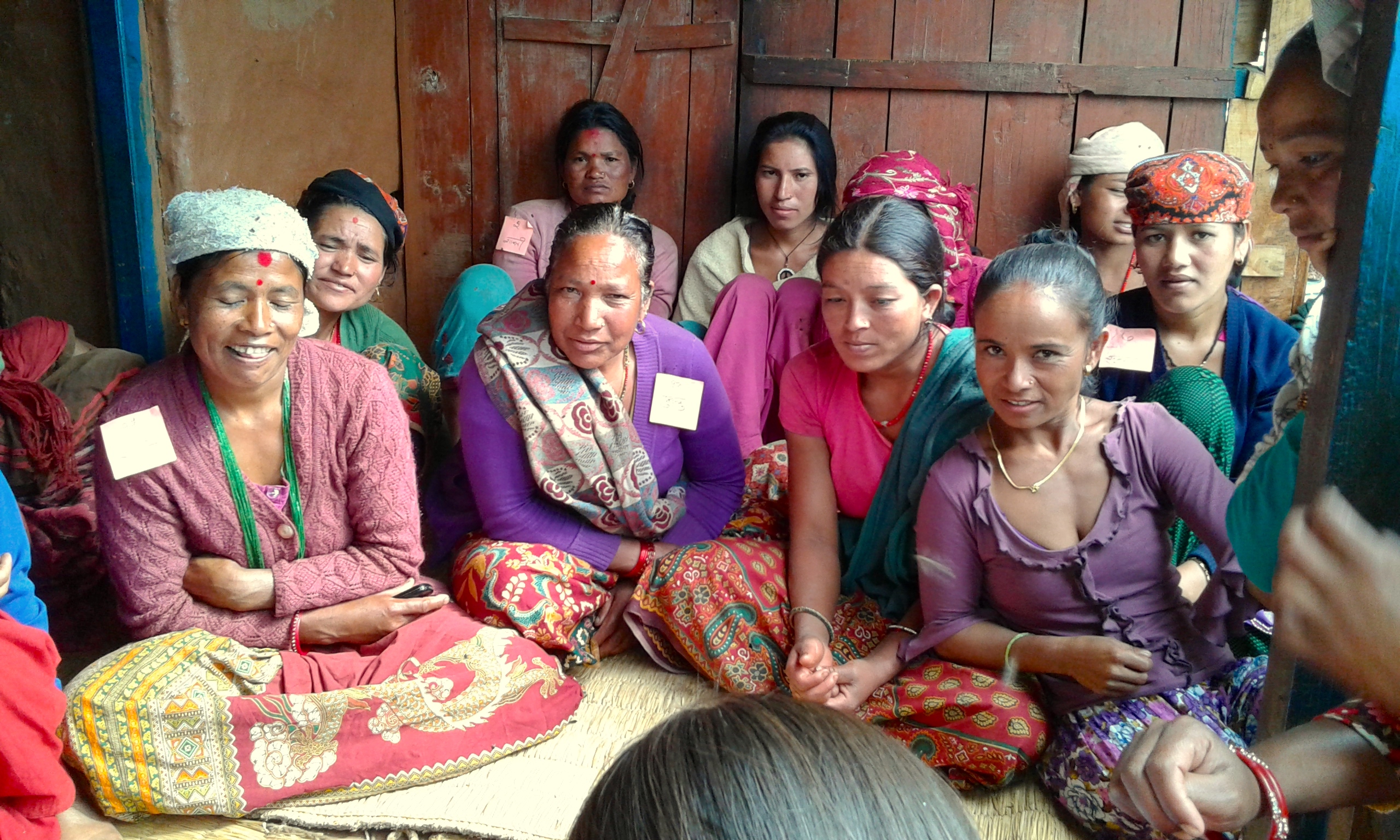Seeds are more than just input- they are the foundation of agricultural transformation. The timely availability and accessibility of quality seeds determines whether farmers can adopt improved crop varieties that boost yields, strengthen resilience to climate stress, and enhance food security. Yet across much of the Global South, seed systems face persistent challenges: weak early generation seed (EGS) supply chains, mismatches between demand and supply, and limited distribution channels that prevent improved seeds from reaching smallholder farmers.
In Nepal, increasing crop yields remains a significant challenge due to low varietal turnover and a low seed replacement rate, around 25% for cereals and even lower for grain legumes, oilseeds, and other crops. The lack of a vibrant, competitive local seed sector limits the availability of improved varieties, leaving many farmers relying on substandard or recycled seed, which reduces productivity. Building a robust seed system requires careful planning and coordination across the entire value chain, from variety development to farmer adoption. Equally important is the seamless and timely flow of information so that all actors can make data-driven decisions to improve productivity.
Managing EGS with a digital breakthrough: DESIS
Until recently, aggregating Nepal’s national seed demand and supply of early generation seed (EGS) —including breeder and foundation seed —took nearly 6–8 months. This lengthy process began at the village level and moved upward through multiple administrative layers to the federal government, involving paper-based submissions, numerous stakeholder meetings, and tedious data verification. The system was slow, inefficient, and resource intensive. Furthermore, reliability of data on demand and supply of seeds was also a noticeable issue in the past.
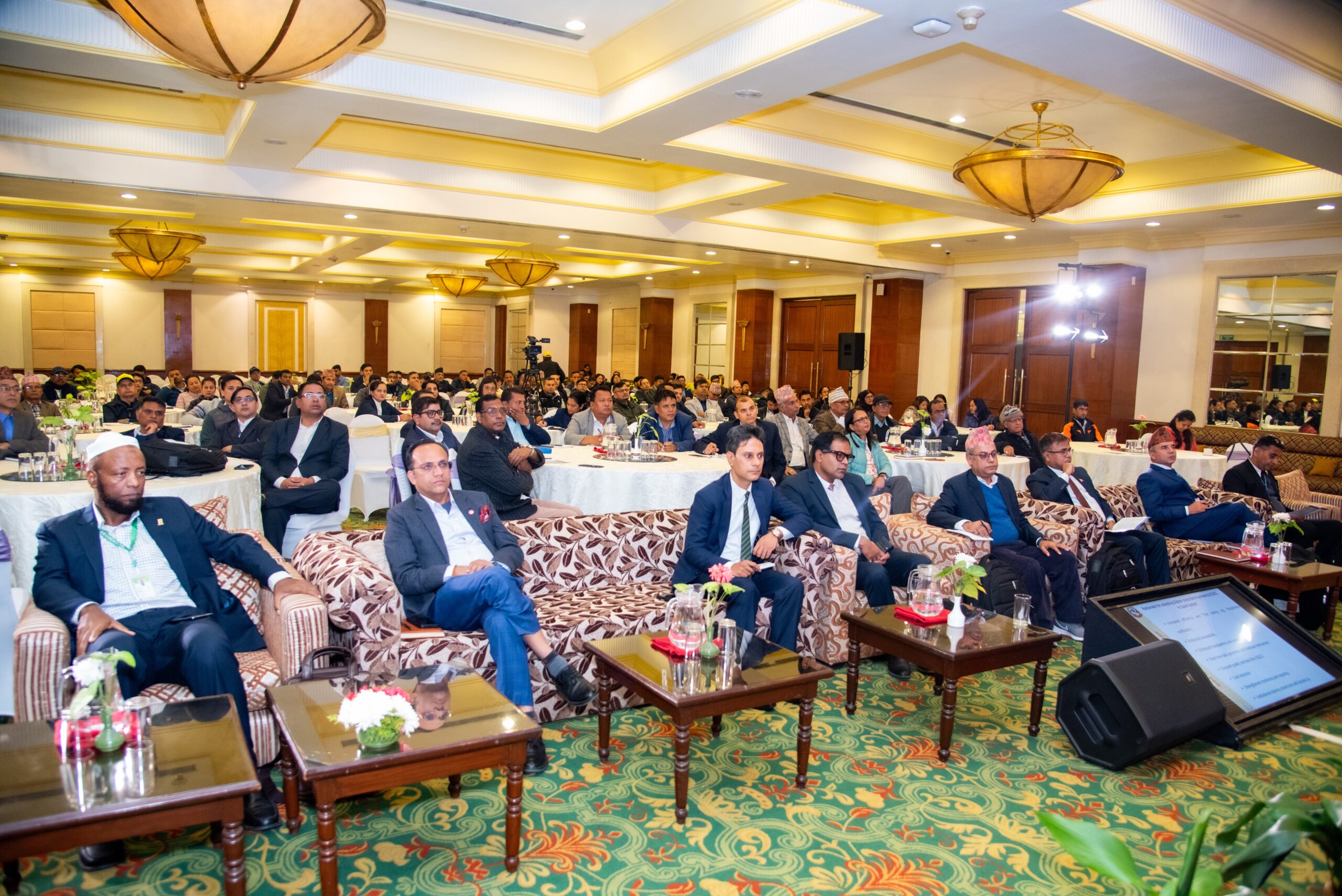
The Digitally Enabled Seed Information System (DESIS), developed by the Seed Quality Control Center (SQCC) in collaboration with CIMMYT, transformed this process. For the first time, Nepal can now manage in real-time the demand and supply of different seed classes through a digital seed balance sheet. This innovation has replaced cumbersome paper-based systems and drastically improved efficiency with reduced cost.
DESIS hosts a digital catalogue of more than 80 crops and 800 varieties released or registered in Nepal, providing detailed varietal characteristics that farmers, seed producers, and extension workers can access to make informed choices. The platform also generates near-accurate data on seed demand, supply, and varietal coverage, critical information often lacking in developing countries. By enabling real-time demand–supply analysis, DESIS ensures that seed multipliers receive seed on time while authorities make timely, evidence-based decisions.
Expanding the digital footprint: DESIS 2.0
Launched in 2020, DESIS quickly gained traction, with hundreds of active users across the seed sector. Building on this success, the SQCC in partnership with CIMMYT has rolled out DESIS 2.0, a more comprehensive platform that integrates additional components of Nepal’s seed system-a one-window digital seed services– key features include:
- Online variety release/registration/notification with complete digital documentation.
- Digital seed inspection and certification through a mobile app for field and lab testing.
- Blockchain-backed seed tracking, to control counterfeit seeds.
- Digital seed import and export management, eliminating manual-based permits.
- Online seed inspectors license renewal, simplifying lengthy process.
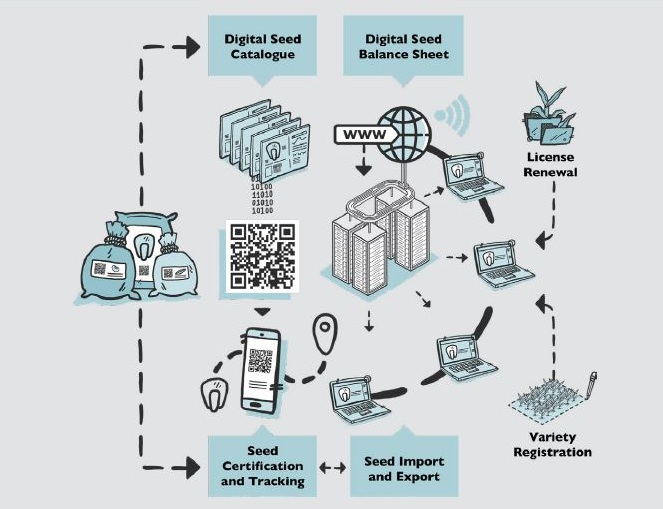
“DESIS 2.0 fosters transparency, improves service delivery, and ensures inclusive access to digital tools by all our stakeholders,” says Benu Prasad Prasai, Chief of SQCC, which manages and institutionalizes the system.
For seed businesses, the impact is significant. Chhotelal Thakur, a seed importer in Birgunj, explains:
“Previously, I had to travel to Kathmandu each time to apply for and collect seed import permits. Now, I can complete the process, including online payments, directly from my office and receive approval within a day. This system saves significant time and cost.”
DESIS 2.0 is also designed to streamline variety release and registration, allowing breeders and applicants to upload breeding history, field performance data, and trait descriptions online. Seed inspectors can track quality at every stage of production and certification via a mobile app, ensuring that farmers ultimately receive genuine, high-quality seeds. The blockchain-enabled seed tag further enhances traceability by allowing users to verify the authenticity of seeds with a simple scan.
Developed locally, scalable globally
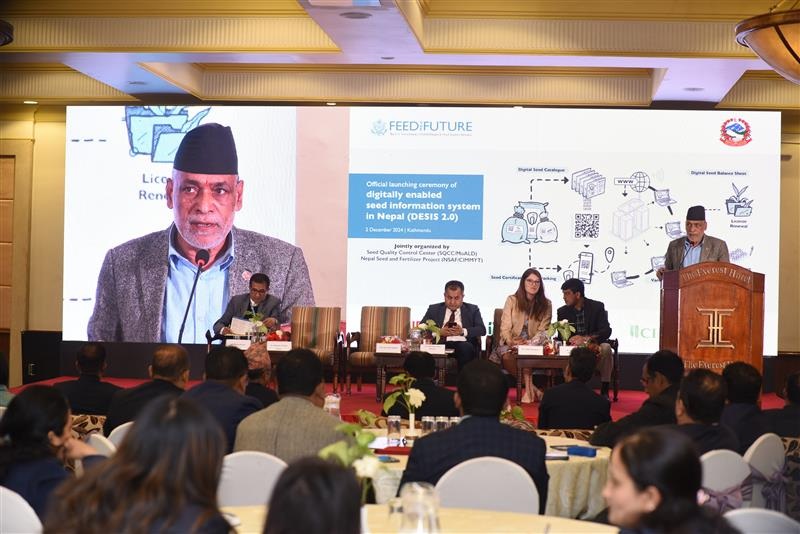
DESIS is a homegrown response to the challenges facing Nepal’s seed sector, developed by a local tech company with seamless APIs linking to AgriTech, FinTech, and GovTech platforms. Its design and expansion were informed by extensive stakeholder consultations, co-creation and validation workshops. Its integration with national institutions such as the Nepal Agricultural Research Council (NARC), Plant Quarantine and Pesticide Management Center (PQPMC), and the Financial Comptroller General’s Office (FCGO), as well as Department of Information Technology (DoIT), demonstrates its cross-sectoral value. Before launch, DESIS 2.0 underwent rigorous cybersecurity and vulnerability testing by Nepal’s DoIT to safeguard data and financial transactions. As a result, DESIS has been recognized as part of the Digital Nepal Framework (DNF), the Government of Nepal’s national strategy to advance digital transformation and harness information and communication technologies for inclusive growth, transparent governance, and better public service delivery. “Seed security is critical for ensuring farmers’ productivity and building national food self-reliance,” said Ram Nath Adhikari, former Minister for Agriculture and Livestock Development, during the official launch of DESIS 2.0 in December 2024 where over 150 seed stakeholders attended. “The Government of Nepal fully supports innovations like DESIS that improve seed access and efficiency across our agriculture sector.”
With nearly 80% smartphone penetration, a dynamic youth population, and expanding digital infrastructure, Nepal is well-placed to expand DESIS even further. Pilots of new features are being tested in selected provinces to familiarize stakeholders and gather feedback for further refinement.
“DESIS 2.0 shows the game-changing power of digital innovation in simplifying and modernizing our seed sector. It is developed locally but has global potential to strengthen seed systems and support agricultural transformation.” Says, Prasai, emphasizing the relevance of disruptive technologies like DESIS.
Its significance
For farmers, DESIS means faster access to improved varieties and high-quality seeds. For seed businesses, it reduces costs and bureaucratic hurdles. For policymakers, it provides data-driven insights for planning and investment. And for donors and development partners, it demonstrates how locally developed digital tools can deliver systemic change, strengthen food security, and be scaled across borders.
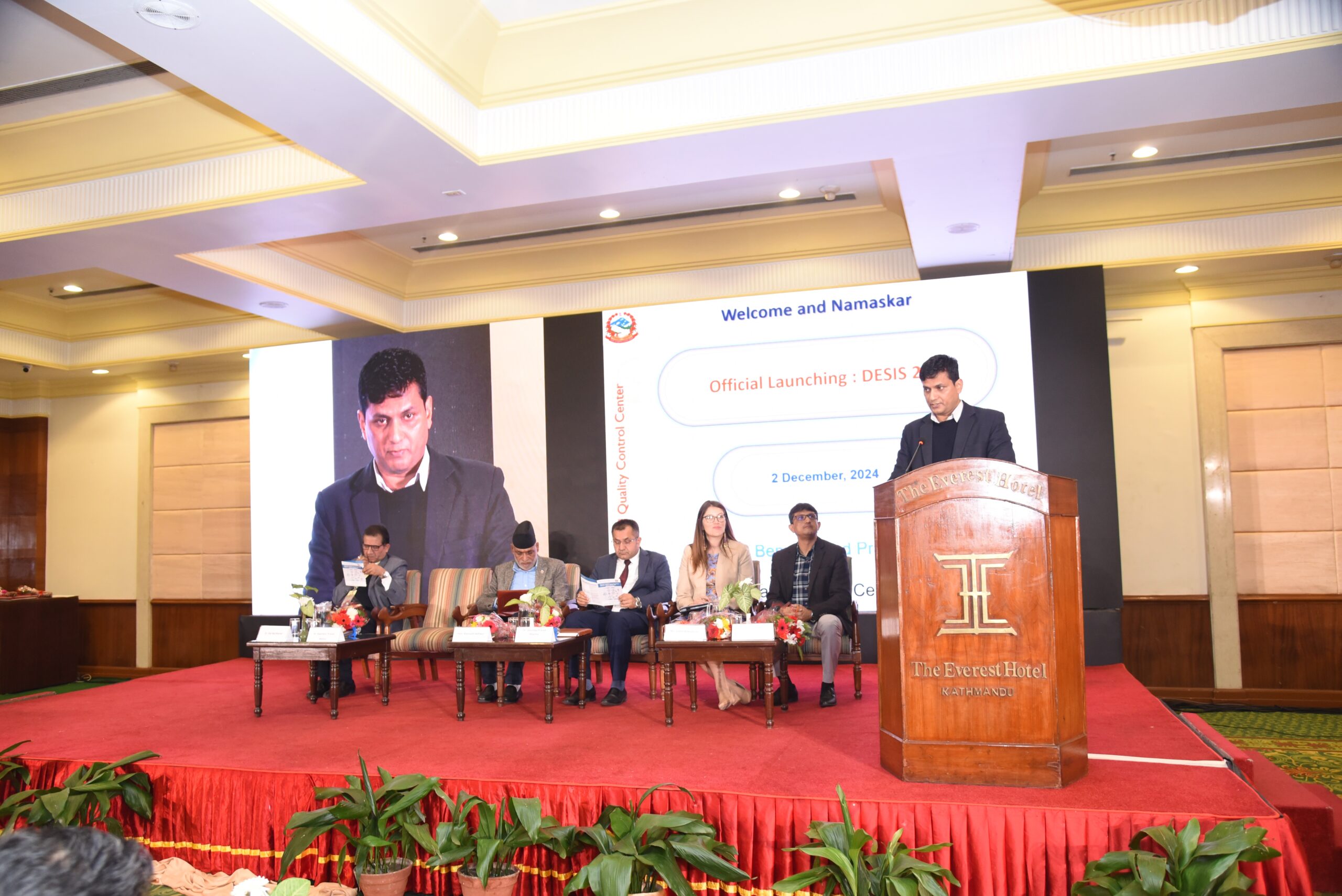
DESIS stands out as Nepal’s only integrated digital platform adopted across all three tiers of government — federal, provincial, and local — to coordinate and place EGS demands for timely and efficient seed multiplication. More than a digital platform, DESIS is a blueprint for seed system transformation, showing that when technology meets local ingenuity, both farmers and food systems benefit.
Moving forward, stakeholders in Nepal should consolidate and expand the platform’s reach through wider orientation and capacity-building forums, while allocating resources to upgrade and integration of new functionalities. Anchored in local contexts and responsive to emerging needs, this will ensure DESIS remains an active, relevant, and preferred platform for all seed sector actors.

 Gender equality, youth and social inclusion
Gender equality, youth and social inclusion 